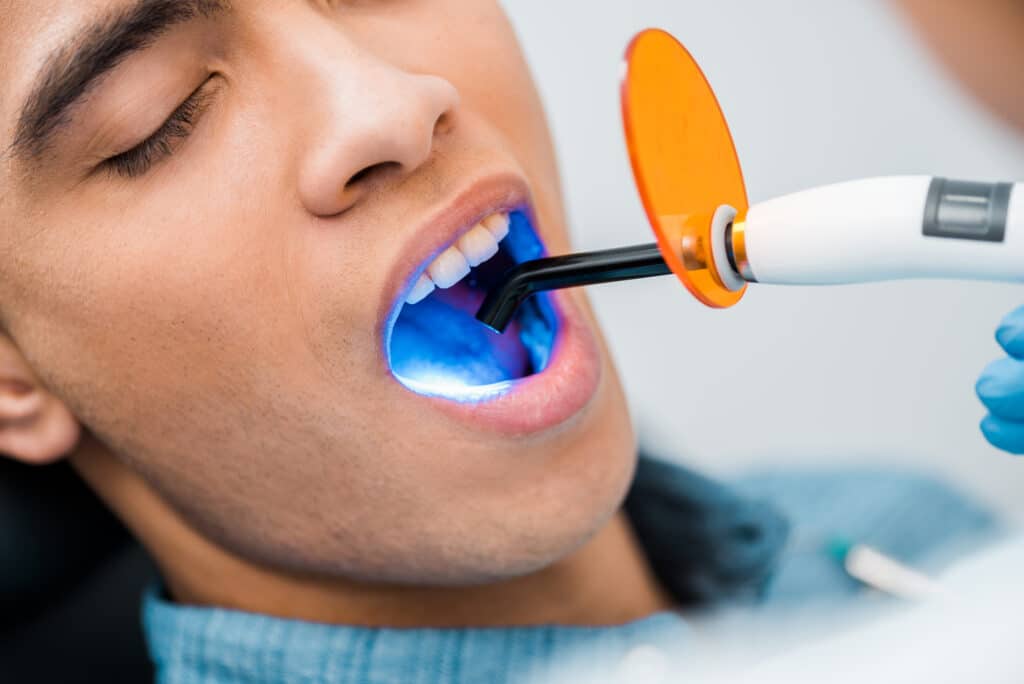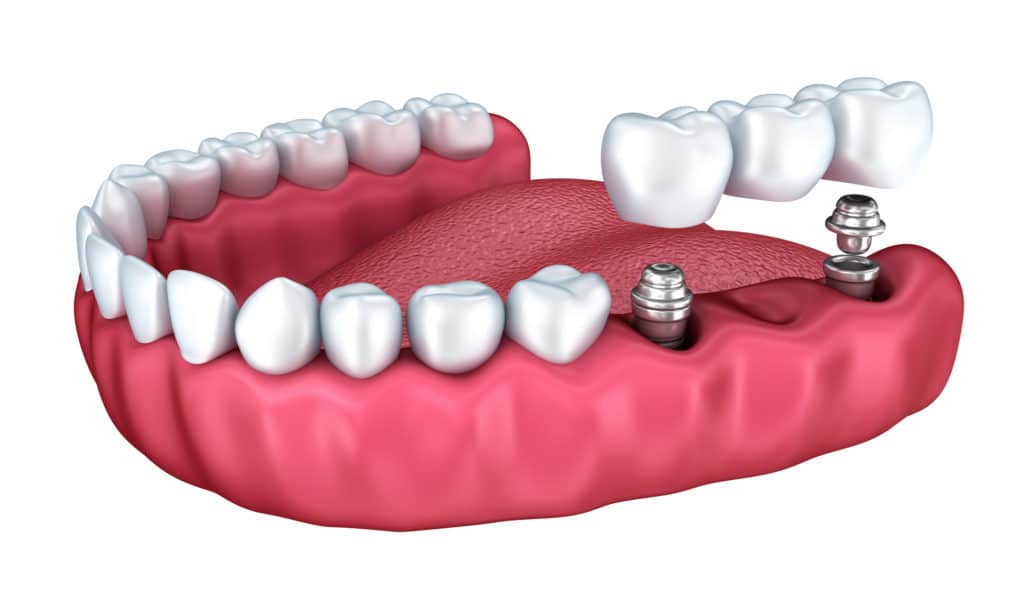
Despite being performed by most general dentists, how are cosmetic and restorative dental treatments different? To answer this question, we highlight the three main differences between cosmetic and restorative dentistry:
1. Different Purposes
Restorative
The purpose of restorative dentistry is to restore proper function and oral health. Dentists perform restorative dentistry when teeth are decayed, damaged, or missing. By way of illustration, when people have extensive dental decay, they may need two restorative procedures:
- 1. Root canal therapy: With Waterlase™ Technology, laser dentists can gently and precisely remove decayed tissue.
- 2. Dental crown placement: Porcelain crowns provide structural support while blending in with the rest of the teeth.
Cosmetic
In contrast, cosmetic dental procedures improve the visual appearance of the smile. Generally speaking, cosmetic dental treatments improve the color, shape, size, alignment, or spacing of the teeth (and sometimes gums). For example, when gums appear uneven or excessive, it can make the most beautiful teeth look awkward. Laser dentists offer laser gum lifts (or crown lengthening) to even out soft tissue and minimize risks and complications.
2. Essential vs. Elective Procedures
Restorative
Restorative dental treatments are essential and designed to repair broken, decayed, or missing teeth. Usually, people pursue restorative dentistry because something is wrong with their teeth, such as oral discomfort, bleeding, swelling, or missing. To alleviate their problems, restorative dentists may suggest:
- -Dental fillings
- -Dental implants
- -Prosthetic dentistry (crowns, bridges, and dentures)
- -Mouthguards for TMJ disorder or bruxism (chronic teeth grinding) treatment
Cosmetic
As a rule, cosmetic dentistry treatments are elective and intended for overall healthy mouths. Primarily, dentists split cosmetic dentistry into two specialties:
- 1. Prosthodontics: The practice of rehabilitating and maintaining the health and appearance of the teeth (such as teeth whitening, dental veneers, and more)
- 2. Orthodontics: The method of moving and adjusting irregular and improper bites (for example, Invisalign® clear braces)
3. Insurance Coverage and Financing
Restorative
Because restorative dentistry is considered medically necessary, dental insurance providers often cover some or all costs associated with restorative procedures. All things considered, dental insurance providers consider a procedure restorative if it is:
- -Medically necessary due to decay, disease, accident, or injury
- -Used for purposes other than aesthetics (such as replacing a missing tooth to help a patient’s bite)
Cosmetic
On the other hand, insurance companies do not typically cover costs associated with dental procedures that are purely cosmetic. Cosmetic dentistry is defined as procedures that:
- -Exist solely for the enhancement of the patient’s smile
- -Are for otherwise healthy underlying tooth or tissue
- -Are not medically necessary
In specific scenarios, dental insurance companies may blur coverage lines and allow patients to receive medically necessary and aesthetically pleasing work. For example, if a patient chips a tooth that needs filling due to decay, he or she can often opt for natural-looking white fillings (instead of noticeable amalgam fillings).
When insurance coverage is not an option, some dental practices provide in-house dental plans to reduce the cost of both restorative and cosmetic dental treatments. Additionally, some dental practices offer financing programs (such as Care Credit) to help patients spread out the cost of treatment into low monthly payments.
Determine if You Need Cosmetic or Restorative Dentistry
Are you unsure if you need cosmetic or restorative dentistry? In Austin, TX, Dr. Helen Ragsdale has extensive training and decades of experience in both. Schedule a consultation at Austin Laser Dentist by calling (512) 346-4690 or conveniently messaging us online.



